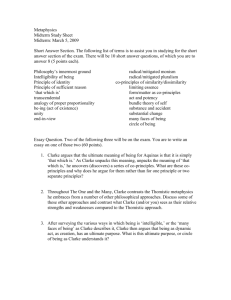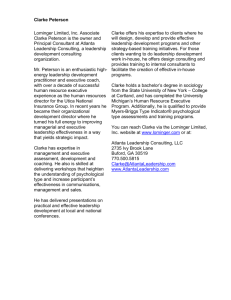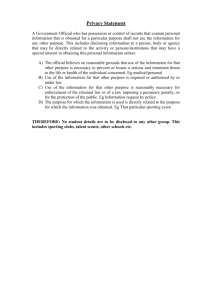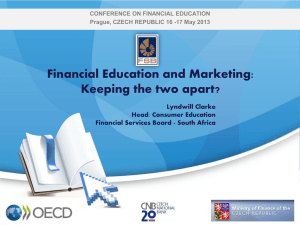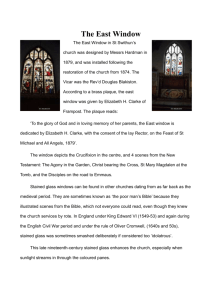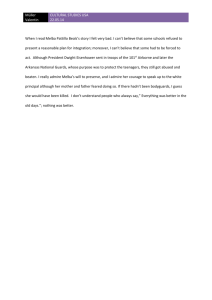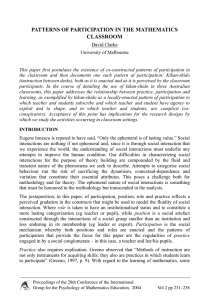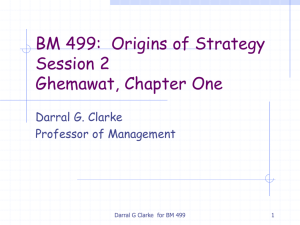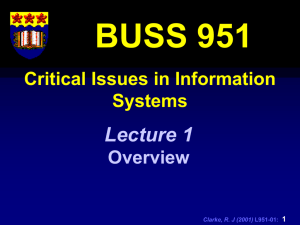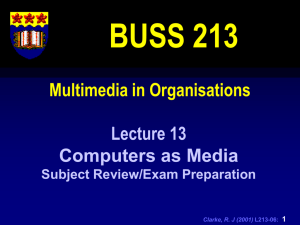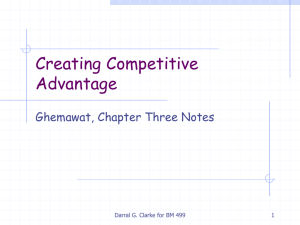Clarke's ho-hum heroics - Australian Catholic University
advertisement
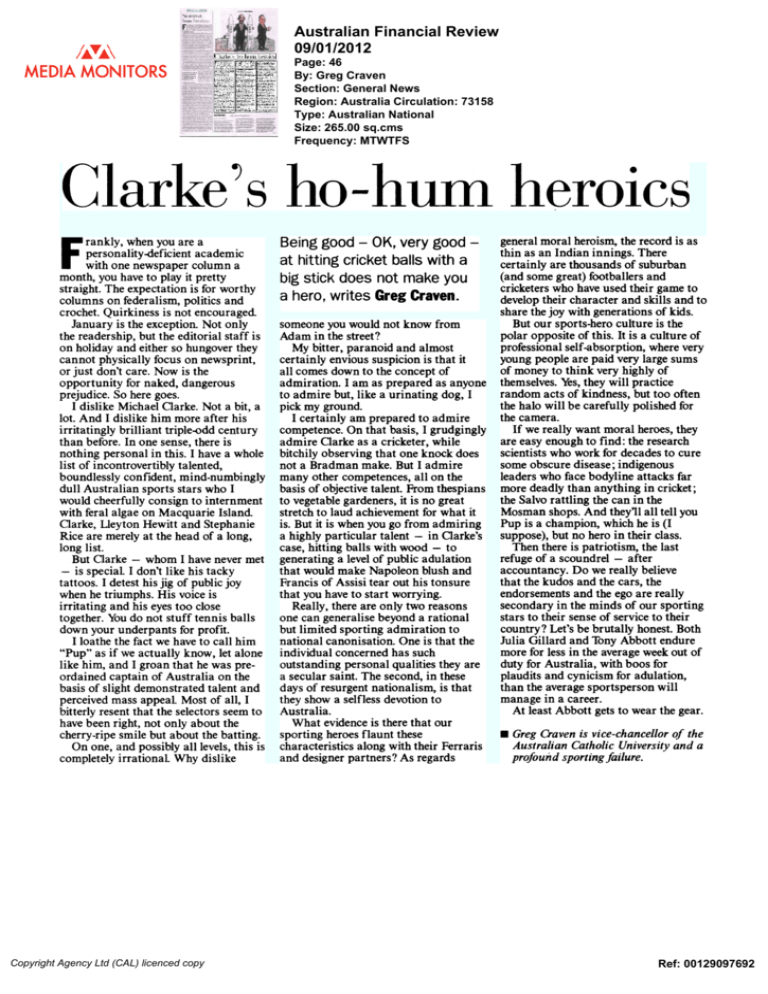
Australian Financial Review 09/01/2012 Page: 46 By: Greg Craven Section: General News Region: Australia Circulation: 73158 Type: Australian National Size: 265.00 sq.cms Frequency: MTWTFS Clarke's ho-hum heroics when you are a personality-deficient academic Frankly, with one newspaper column a month, you have to play it pretty straight. The expectation is for worthy columns on federalism, politics and crochet. Quirkiness is not encouraged. January is the exception. Not only the readership, but the editorial staff is on holiday and either so hungover they cannot physically focus on newsprint, or just don't care. Now is the opportunity for naked, dangerous prejudice. So here goes. I dislike Michael Clarke. Not a bit, a lot. And I dislike him more after his irritatingly brilliant triple-odd century than before. In one sense, there is nothing personal in this. I have a whole list of incontrovertibly talented, boundlessly confident, mind-numbingly dull Australian sports stars who I would cheerfully consign to internment with feral algae on Macquarie Island. Clarke, Lleyton Hewitt and Stephanie Rice are merely at the head of a long, long list. whom I have never met But Clarke is speciaL I don't like his tacky tattoos. I detest his jig of public joy when he triumphs. His voice is irritating and his eyes too close together. You do not stuff tennis balls down your underpants for profit. I loathe the fact we have to call him "Pup" as if we actually know, let alone like him, and I groan that he was preordained captain of Australia on the basis of slight demonstrated talent and perceived mass appeaL Most of all, I bitterly resent that the selectors seem to have been right, not only about the cherry-ripe smile but about the batting. On one, and possibly all levels, this is completely irrationaL Why dislike Copyright Agency Ltd (CAL) licenced copy Being good OK, very good at hitting cricket balls with a big stick does not make you a hero, writes Greg Craven. someone you would not know from Adam in the street? My bitter, paranoid and almost certainly envious suspicion is that it all comes down to the concept of admiration. I am as prepared as anyone to admire but, like a urinating dog, I pick my ground. I certainly am prepared to admire competence. On that basis, I grudgingly admire Clarke as a cricketer, while bitchily observing that one knock does not a Bradman make. But I admire many other competences, all on the basis of objective talent. From thespians to vegetable gardeners, it is no great stretch to laud achievement for what it is. But it is when you go from admiring a highly particular talent in Clarke's case, hitting balls with wood to generating a level of public adulation that would make Napoleon blush and Francis of Assisi tear out his tonsure that you have to start worrying. Really, there are only two reasons one can generalise beyond a rational but limited sporting admiration to national canonisation. One is that the individual concerned has such outstanding personal qualities they are a secular saint. The second, in these days of resurgent nationalism, is that they show a selfless devotion to Australia. What evidence is there that our sporting heroes flaunt these characteristics along with their Ferraris and designer partners? As regards general moral heroism, the record is as thin as an Indian innings. There certainly are thousands of suburban (and some great) footballers and cricketers who have used their game to develop their character and skills and to share the joy with generations of kids. But our sports-hero culture is the polar opposite of this. It is a culture of professional self-absorption, where very young people are paid very large sums of money to think very highly of themselves. Yes, they will practice random acts of kindness, but too often the halo will be carefully polished for the camera. If we really want moral heroes, they are easy enough to find: the research scientists who work for decades to cure some obscure disease; indigenous leaders who face bodyline attacks far more deadly than anything in cricket; the Salvo rattling the can in the Mosman shops. And they'll all tell you Pup is a champion, which he is (I suppose), but no hero in their class. Then there is patriotism, the last refuge of a scoundrel after accountancy. Do we really believe that the kudos and the cars, the endorsements and the ego are really secondary in the minds of our sporting stars to their sense of service to their country? Let's be brutally honest. Both Julia Gillard and Tony Abbott endure more for less in the average week out of duty for Australia, with boos for plaudits and cynicism for adulation, than the average sportsperson will manage in a career. At least Abbott gets to wear the gear. Greg Craven is vice-chancellor of the Australian Catholic University and a profound sporting failure. Ref: 00129097692

